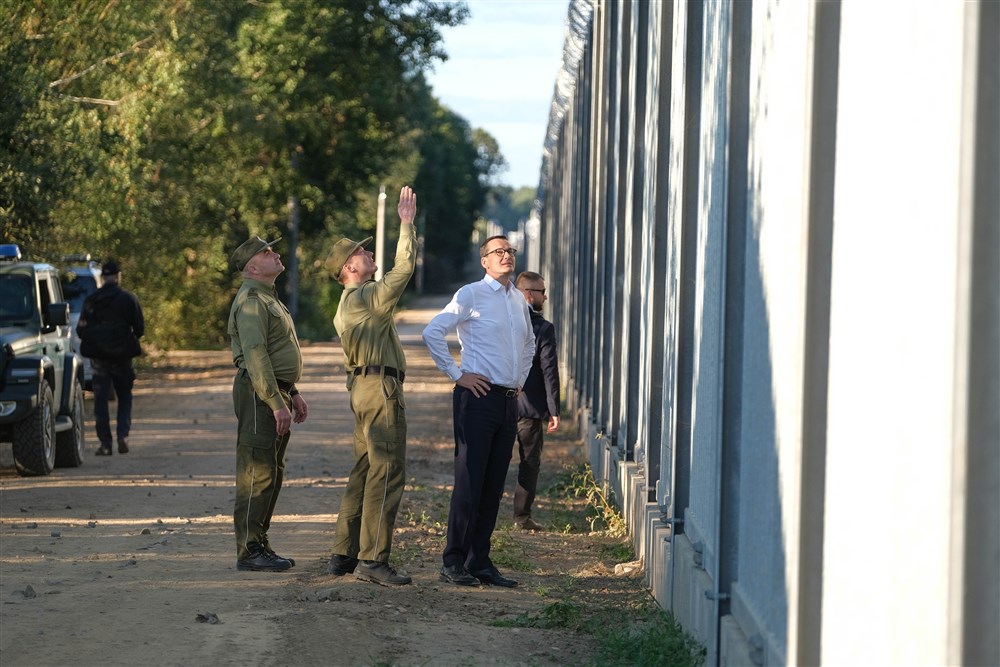Polish President Andrzej Duda has signed into law legislation ensuring that soldiers will no longer face criminal liability for using their firearms in cases of migrant aggression at the country’s borders.
Firearms may now be used in “repelling a direct and unlawful attack” that threatens the “life, health or freedom” of officers during an “attack on the inviolability of the state border,” or when “counteracting actions directly aimed” at such an attack, states the new law, brought in on August 15.
Using firearms is also permitted when a person refuses to obey calls to abandon weapons, or when they try to seize a weapon from an officer, and the “circumstances require immediate action.”
The legislation was proposed by the government and passed with opposition support in parliament in response to increasing aggression from migrants seeking to cross illegally the border from Belarus. One such act of aggression led to the stabbing and death of a Polish soldier.
It also followed an incident in which three soldiers were detained and charged with the unlawful use of firearms against illegal migrants trying to force their way across the border. The arrests made at the behest of public prosecutors caused uproar, prompting allegations that the persecution of such soldiers would render many too afraid to use their firearms even in cases of mortal danger.
“I was happy to sign the law that will enable the border to be protected even better, even more efficiently, also with increased security for Polish soldiers,” said President Duda, an ally of the opposition Law and Justice (PiS) party, during celebrations of Poland’s annual Armed Forces Day.
The legislation has been criticised by international organisations, Poland’s Ombudsman and civil society groups such as the Helsinki Foundation for Human Rights which claimed the law gave soldiers a “licence to kill.”
In July the legislation was criticised by Michael O’Flaherty, the Council of Europe’s Commissioner for Human Rights, who warned that the new rules could discourage border agents from using force proportionally and could result in the use of firearms not being properly investigated.
Polish Prime Minister Donald Tusk and his party have changed course with regard to protecting Poland’s borders. When in opposition they had taken the PiS government to task for what they called demonising migrants and for inhuman treatment of potential refugees on the border with Belarus. They also expressed doubts about a border fence the PiS government constructed.
Now in office, Tusk’s government has decided to beef up border security with more officers, strengthened fortifications on that border and warned that Russia has been facilitating illegal migrants arriving on the EU’s borders.





